Who are you?
What industry do you work in?
See how Portland, Los Angeles, Philadelphia, and New Orleans are breaking down transportation barriers for low-income residents through innovative Universal Basic Mobility and Mobility Wallet programs.
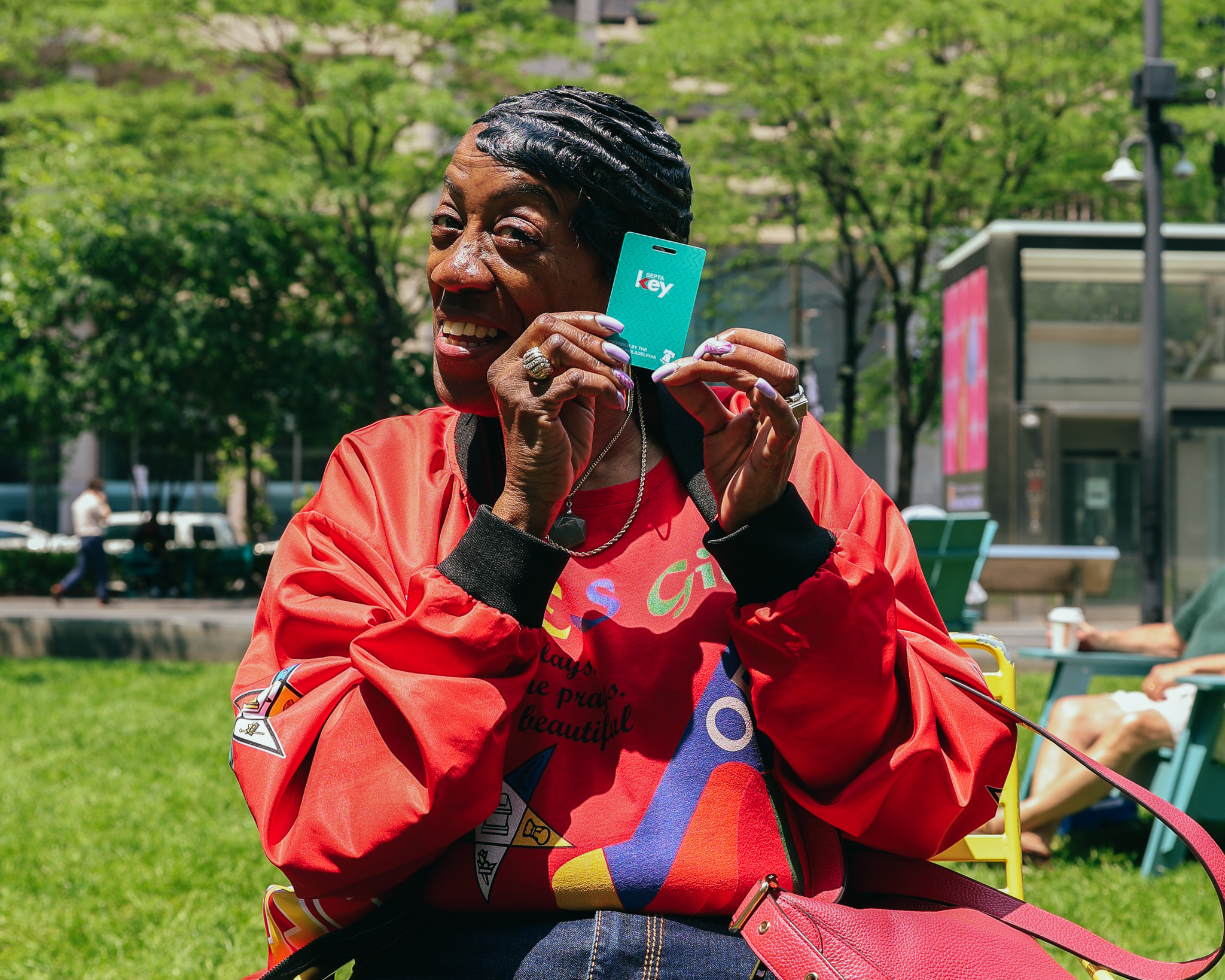
What if we gave people access to the transportation they need, for free?
This was the foundation of one of many inspiring discussions presented by civic and transportation leaders at this year's 2025 ACT International Conference in New Orleans.
Moderated by Jawnt CEO Jeff Stade, panelists from four major U.S. cities came together to share how their Universal Basic Mobility (UBM) programs are reshaping access to transportation for low-income residents, and providing a blueprint for other cities to follow suit.
Read on to learn more about their work.
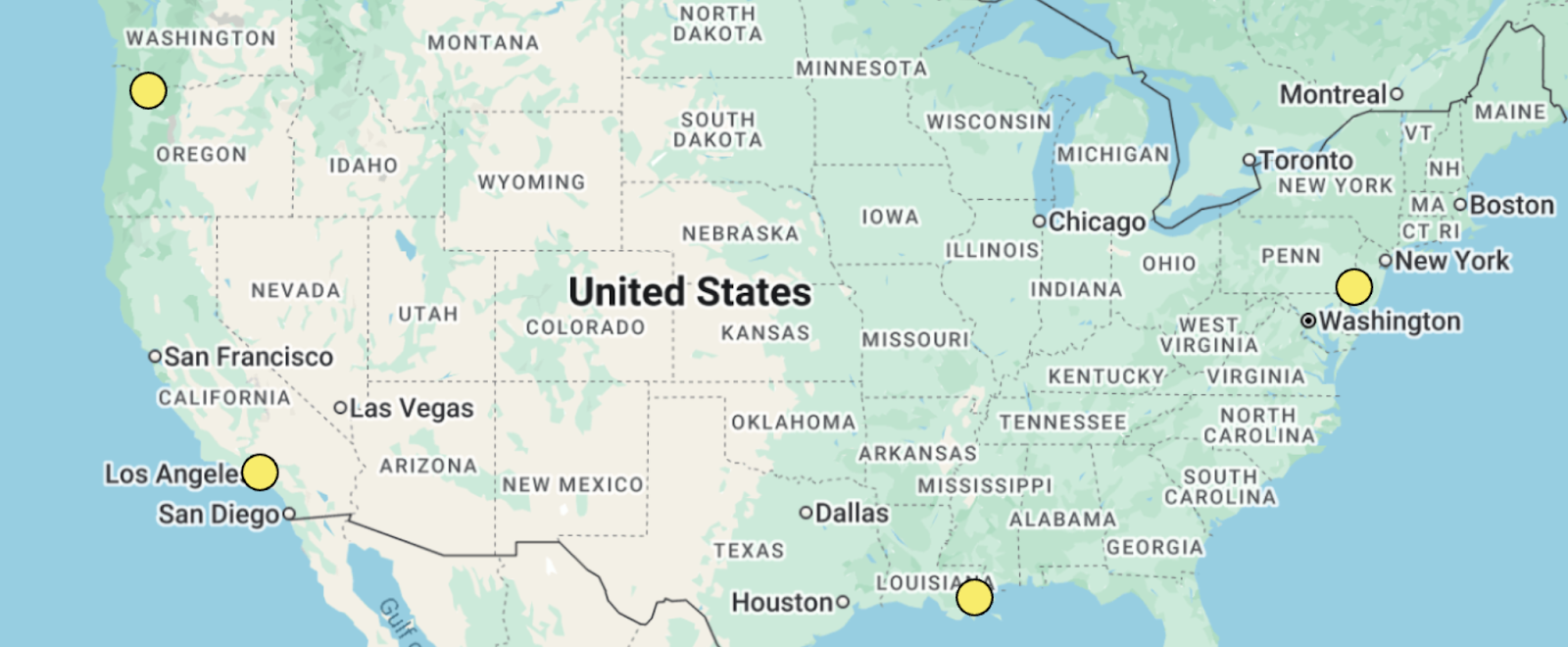
Launched: 2019
Managed by: Portland Bureau of Transportation
Who it serves: Low-income Portland residents associated with partner organizations
How it’s funded: The Portland Clean Energy Community Benefits Fund (PCEF)
Portland's Transportation Wallet: Access for All program was piloted in 2019 with the goal of increasing bicycling, walking, transit use, and carpooling among people who live in affordable housing. Six years later, the program has expanded to serve 2,500 individuals in partnership with 18 community organizations throughout the city.
Participants can choose the option that works best for them, whether that’s a full-year transit pass for buses, light rail, and streetcar use, or a multimodal package that combines transit fare with funds or credits for services like rideshare, e-scooters, and bike-share. For households, a similar multimodal package is available, with credit amounts adjusted based on household size.
Community-based organizations, or CBOs, handle recruitment, eligibility verification, and pass distribution. The program team fulfills wallets and compiles packets in-house, but relies on trusted community partners for the final mile of program delivery. “We're a team of three,” said Adriana Aguilar, Transportation Demand Management Specialist for the Portland Bureau of Transportation. “Having those CBOs play an integral role really lets us do so much more.”
The program creates meaningful feedback loops by offering participants $25 transit credits for completing program surveys, a smart way to gather data that will improve the program over time. To date, over 95% of participants said that they saved money on transportation costs because of the program, and 52% said they tried a new transportation mode as a result.
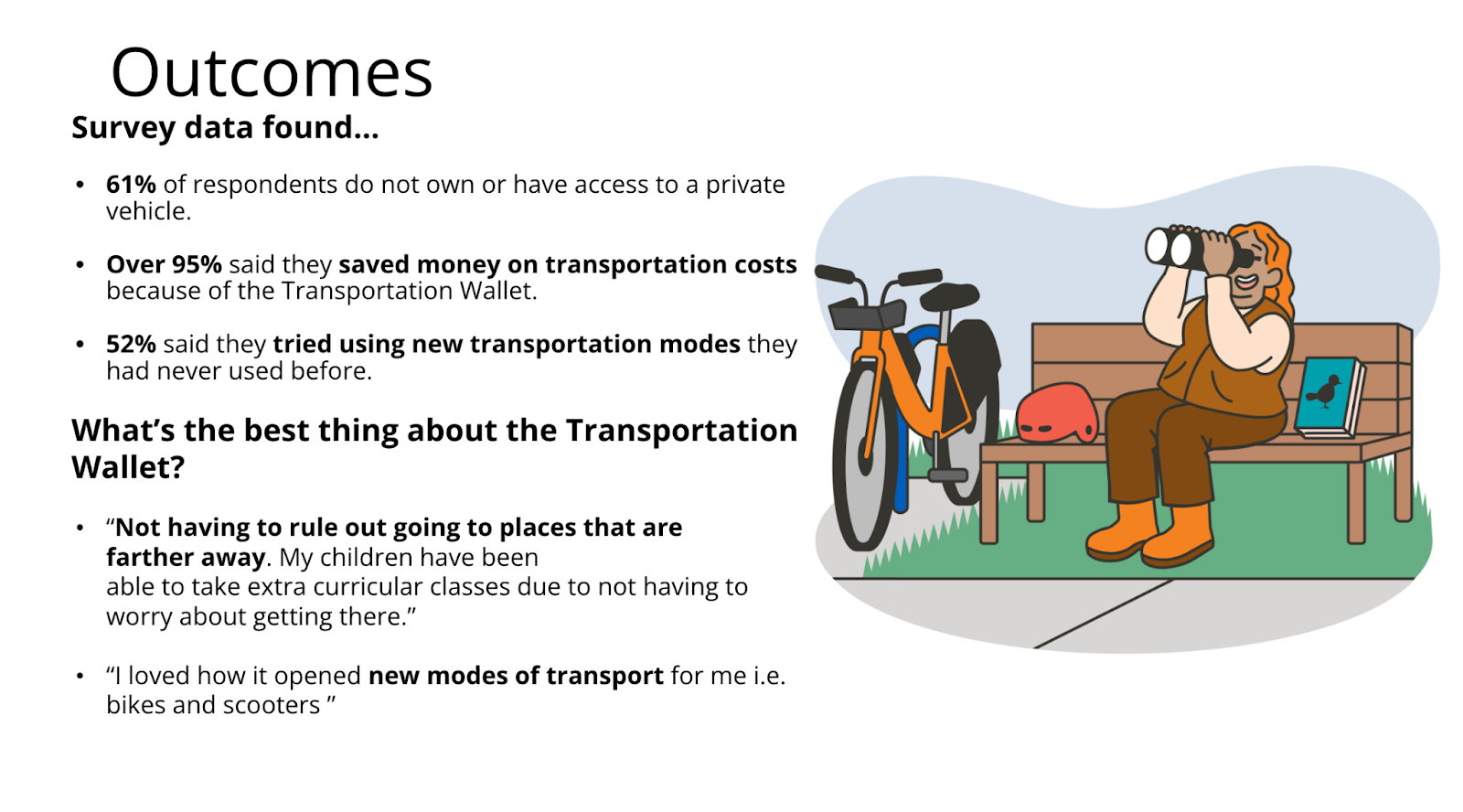
Launched: 2023
Managed by: LA Metro in partnership with LA Department of Transportation (LADOT)
Who it serves: Low-income residents of South Los Angeles
How it’s funded: City of Los Angeles, California Air Resources Board STEP grant, and Southern California Association of Governments (SCAG) grant
In a sprawling city where commutes are long and driving is often the default, LA Metro's Mobility Wallet pilot program connects low-income residents to jobs, healthcare, and essential services while easing the environmental and economic toll of car dependence.
The program gives participants a debit card loaded with up to $1,800 for 12 months, which they can spend on a variety of shared transportation services. Using merchant category codes—the same banking rules that categorize your credit card purchases—the system automatically sorts and restricts spending across eight different transportation categories. This means participants can use their monthly allocation for everything from bus rides to Uber trips to bike repairs, reflecting the reality of how people actually move around Los Angeles.

Avital Shavit, Senior Director of LA Metro’s Office of Innovation, highlighted the value of using existing infrastructure when building a universal basic mobility program: “Let's not reinvent the wheel. Let's find the best practices out there, whether they be in transportation, in the fintech industry, in the banking industry, and let's borrow from that.”
Currently serving 2,000 people in Phase II, LA Metro is already thinking at massive scale: potentially one million residents could qualify countywide, signaling its potential to become a lasting part of LA’s transportation system.
Launched: 2023
Managed by: City of Philadelphia in partnership with SEPTA and Jawnt
Who it serves: Philadelphia residents with lower incomes
How it’s funded: The City of Philadelphia
The Zero Fare program centers around a sobering reality: Philadelphia residents with lower incomes face some of the highest transit cost burdens in the United States despite most Philadelphians living in close proximity to public transit. “The heart of Zero Fare was—and still is—access and equity,” said Nicola Mammes, Director of the city’s Transit Fare Programs. To that end, the city designed its program to reach as many eligible residents as the funding allows by providing free transit passes to residents without a cumbersome application process.
The program is designed to remove friction in accessing the benefit at every possible step, through automatic enrollment and comprehensive outreach. Residents enrolled in income-based benefits are determined eligible for Zero Fare based on city administrative records and are automatically enrolled through a lottery selection process, while Philadelphia residents not eligible for automatic enrollment are enrolled through program partner community-based organizations. Program participants receive their free transit pass in the mail or through a community partner organization, and can start using it right away.
After reaching 25,000 residents in its first phase, Philadelphia's model has reached a high participation rate as compared to other UBM programs, and as of July 2025, the program has paid for nearly 9 million trips on SEPTA with 115,000 trips on average per week or an average of 10.5 trips per person per week.
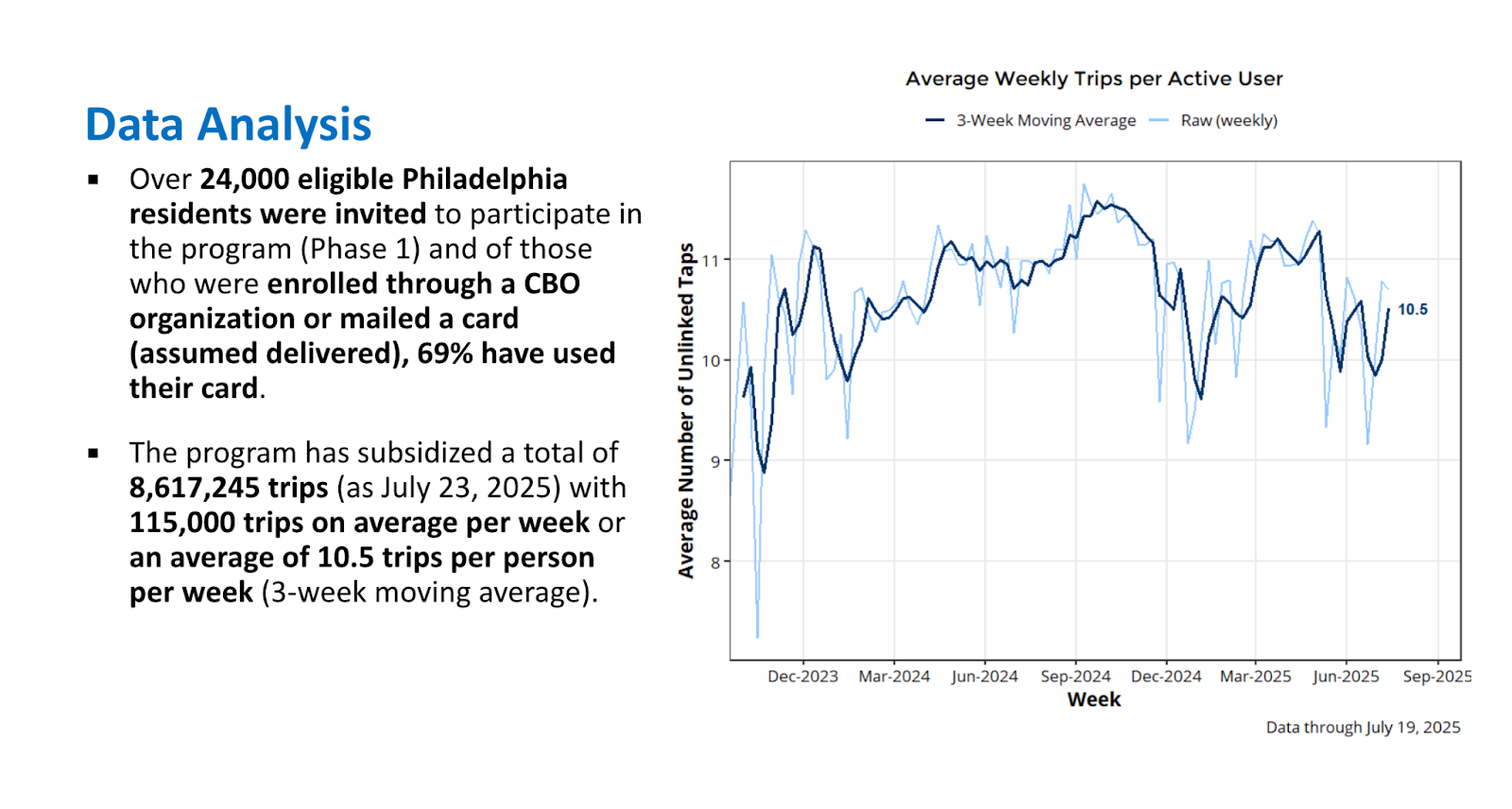
And most importantly, participants have told us their Zero Fare card has helped them save money, get to work, see family, and enjoy all that Philadelphia has to offer.
Launched: 2024
Managed by: Ride New Orleans, New Orleans Children and Youth Planning Board, New Orleans Public Library, and Regional Transit Authority
Who it serves: Orleans Parish residents between the ages of 16-24
How it’s funded: City of New Orleans, using funds from the American Rescue Plan
History has shown us that the City of New Orleans is not afraid to rebuild. Although transit service has been drastically reduced since Hurricane Katrina and the Covid-19 pandemic, there are pressing reasons to invest in rebuilding public transportation.
New Orleans’ Opportunity Pass unlocks the city for young people, offering residents ages 16–24 unlimited, fare-free transit. In a place where getting around can be complex, the pass turns that complexity into connection, linking youth to culture, amenities, jobs, and school across every neighborhood.
Eligible individuals can sign up at any New Orleans Public Library branch using just their smartphone, then receive codes through the RTA Le Pass app for free daily passes. This library partnership ensures access points throughout the city while creating natural gathering spaces for program participants.
With 5,500 youth already enrolled, the Opportunity Pass builds a foundation for a generation of knowledgeable and enthusiastic public transit users who will help shape the city's future. Asya Howlette, Director of the Office of Youth and Families for The City of New Orleans, concluded by sharing how sustainable funding for UBM and transit could vastly improve job access and overall quality of life.
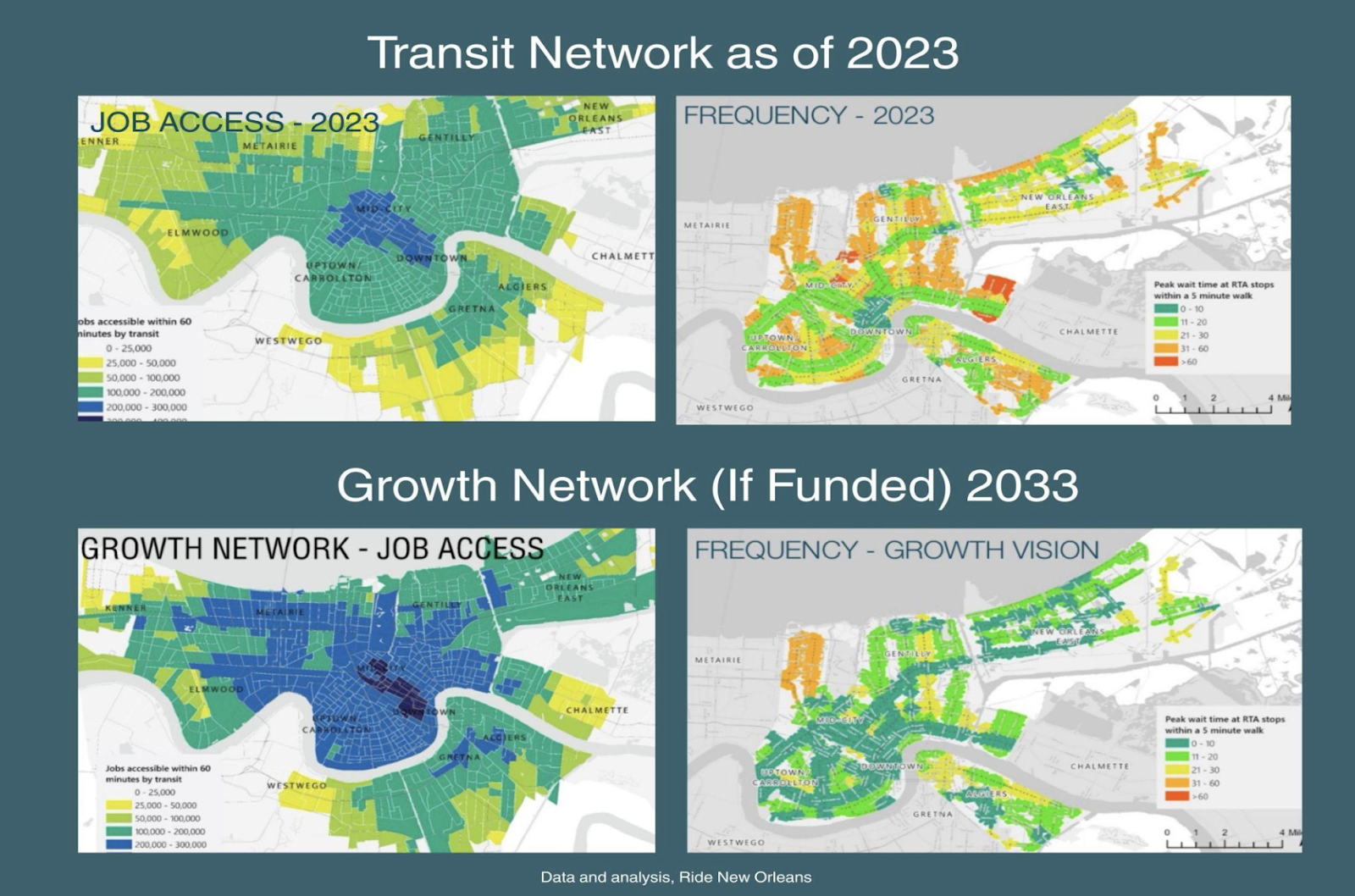
“We know that connectivity helps students, helps cities run more efficiently, and gives people a higher quality of life. We know that if you put money into something, people are going to work,” said Howlette. “What we should be considering is: how do you build coalitions of people to bring along the way, who can also advocate for building bridges across sectors?”
For cities working towards more equitable transportation, these stories provide both inspiration and practical roadmaps for putting mobility wallets into the hands of those who need them most. By sharing the insights we’ve gleaned from Portland, LA, Philly, and New Orleans, we hope this helps new programs launch faster and reach more people.
Related reading from Jawnt: